

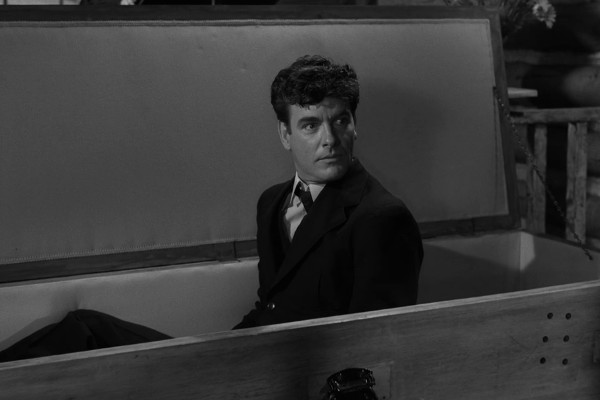
Montgomery Pittman isn't one of the major talents behind the series, but his presence was certainly felt during season three. After directing the second season's Will The Real Martian Please Stand Up?, he directed this season's Charles Beaumont tale Dead Man's Shoes. Yet most significantly he got to direct three of his own scripts - Two, The Grave, and this blackly comic tale of a man returned from death.
The humour involved is wrapped up in verbal wit, so that while it's a light-hearted tale, the characters behave naturally. A particular stand out has to be Jeff's parents discussing his new-found work ethic since his resurrection: "I recollect worrying many times that he leaned just a shade towards the side of shiftlessness." "Not lazy, exactly, but..." "No, no... just uninterested."
The screenplay does seem to go out of its way to avoid the word "zombie" by any means possible, just in case the censors would get cold feet about an already macabre episode, but this is also in keeping with the time: the period is the 1920s, and it wasn't until 1929 that the word was introduced to American culture. While the least of the three episodes Pittman wrote and directed, it's still a fine entry, and its relatively low placing is not a slight on the episode, but a testament to just how strong this season is. Sadly, Pittman wouldn't get a chance to work on further episodes of the series... he died of cancer aged 45, just 25 days after season three finished airing.

Season opener Two features Charles Bronson and Elizabeth Montgomery in that staple of many a student film... a post-apocalyptic wasteland. Filmed on the old Hal Roach backlot, which had fallen into disuse, it looks terrific, and both give considered performances, if you can overlook the shock of Bronson smacking Montgomery unconscious. Montgomery's unnamed character can, as the end result is a love story.
The story acts almost as an inverse of the two previous season openers, which had a single actor attempting to verbalise a story... here we have two actors and there's almost no dialogue. In fact, other than Rod's introduction, there's no spoken word until nine minutes in, and Montgomery doesn't speak any English at all.
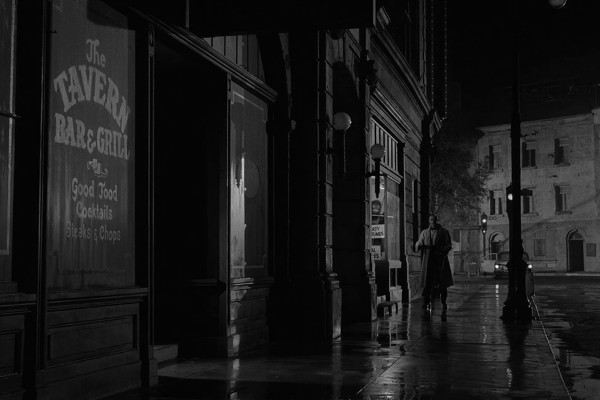
Written by Charles Beaumont and based on his own 1954 short story in If Magazine, this is the kind of thing that may have just about passed seven years beforehand. However, by 1961 this tale of New York businessman under the grip of an African witch doctor's curse seems archaic. A man leaves his apartment and there's a dead goat on the floor... he answers a telephone kiosk mysteriously ringing and a macaw is on the other end of the line... he gets back home and the MGM lion is on the bed looking for revenge...
However, what makes this episode rate far higher in this ranking than it perhaps deserves is not only the suggestion that it's all in the lead character's mind (perhaps not coincidentally, an advert for "Better Mental Health" follows the programme) but the direction. William Claxton puts in superb, first-rate work, with fantastic lighting, making the dialogue-free moments rise to some of the best pieces the Zone ever did. Ultimately this is visually a high point, even if narratively and thematically it's very much the reverse.
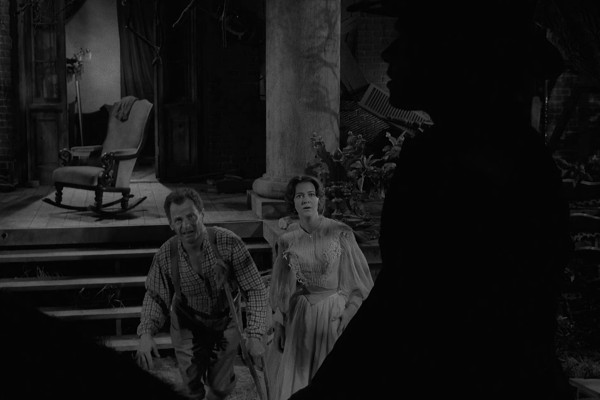
A Serling meditation on war and death, there's certainly criticisms to be made here if you really want to: it can be slow, the "twist" ending is pretty obvious (and done before, more than once) and, while James Gregory gives a fine performance, he does stumble over a couple of lines, which are left in. That's the nit-picks aside. For this is a more unhurried, reflective instalment, and, as discussed in earlier articles, the series is able to use metaphor to comment on contemporary issues. Vietnam was still escalating slowly and wasn't really reaching a wider US audience at this stage, but the shadow of all-out nuclear war was still strong; indeed, one of the biggest "close calls" took place twelve months after this episode aired. It would be unlikely that many TV series of the time would be allowed to promote a contemporary anti-war message... The Twilight Zone is a series that can do it with the Civil War of 1865.
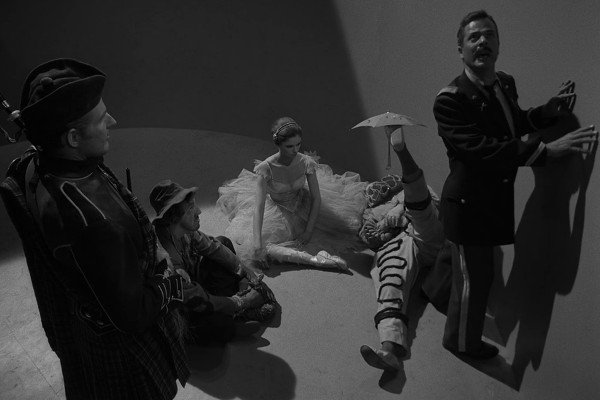
Based on a story by Marvin Petal, Rod Serling's work here is a little more avant garde than the usual Twilight Zone episode, which can make it seem a little "try hard" for mainstream television (albeit mainstream television of a finer cloth) but it gets by.
Five characters are trapped in a cylinder with no memory of how they got there, in a situation that was reportedly an inspiration for the horror film Cube. Together a major, a clown, a ballerina, a hobo and a piper work together to find a means of escape from their prison. Unfortunately while Murray Matheson is terrific as the clown, and most of the others fill their parts well, Baltimore-born Clark Allen performs a Scottish bagpiper with a "Scottish" accent heard nowhere in the history of the world. The ending is a little too "out there" even for The Twilight Zone, and it's a shame - spoiler - the eerie doll lookalikes weren't used for the scene where the girl picks up the doll. Overall, though, this is one of the better episodes, even if the all-pervading twist does make it more of a one-time viewing experience than most instalments.
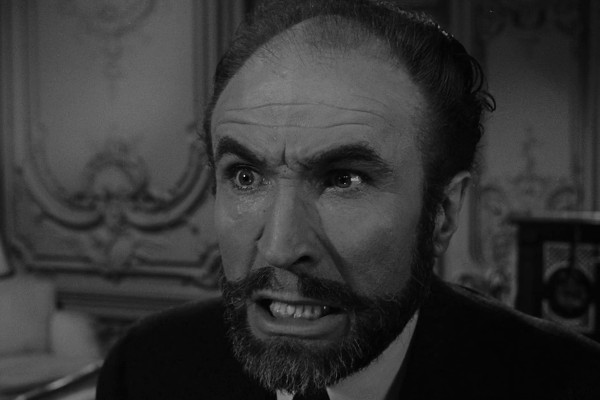
The other Earl Hamner script of the season, and probably his best for the series. A sadistic theatre critic buys a piano for his wife which, when playing music, reveals the true nature of the person within. RADA-trained Barry Morse has a perfect voice, which he uses to full effect, callously conducting psychological experiments with no regard for his guests' feelings.
It's somewhat of a shame that Philip Coolidge is a little over-the-top as the man who sells the piano, as it suggests that this will be another knockabout comedy, which isn't the case. Although it has lighter moments, there's a sardonic vibrancy throughout, with Morse even delighted to learn that this screen wife is having an affair. Highlight has to be Muriel Landers, the life of the party masking insecurity over her weight problem. Morse's character cruelly tortures her with the piano in a heartbreaking sequence.